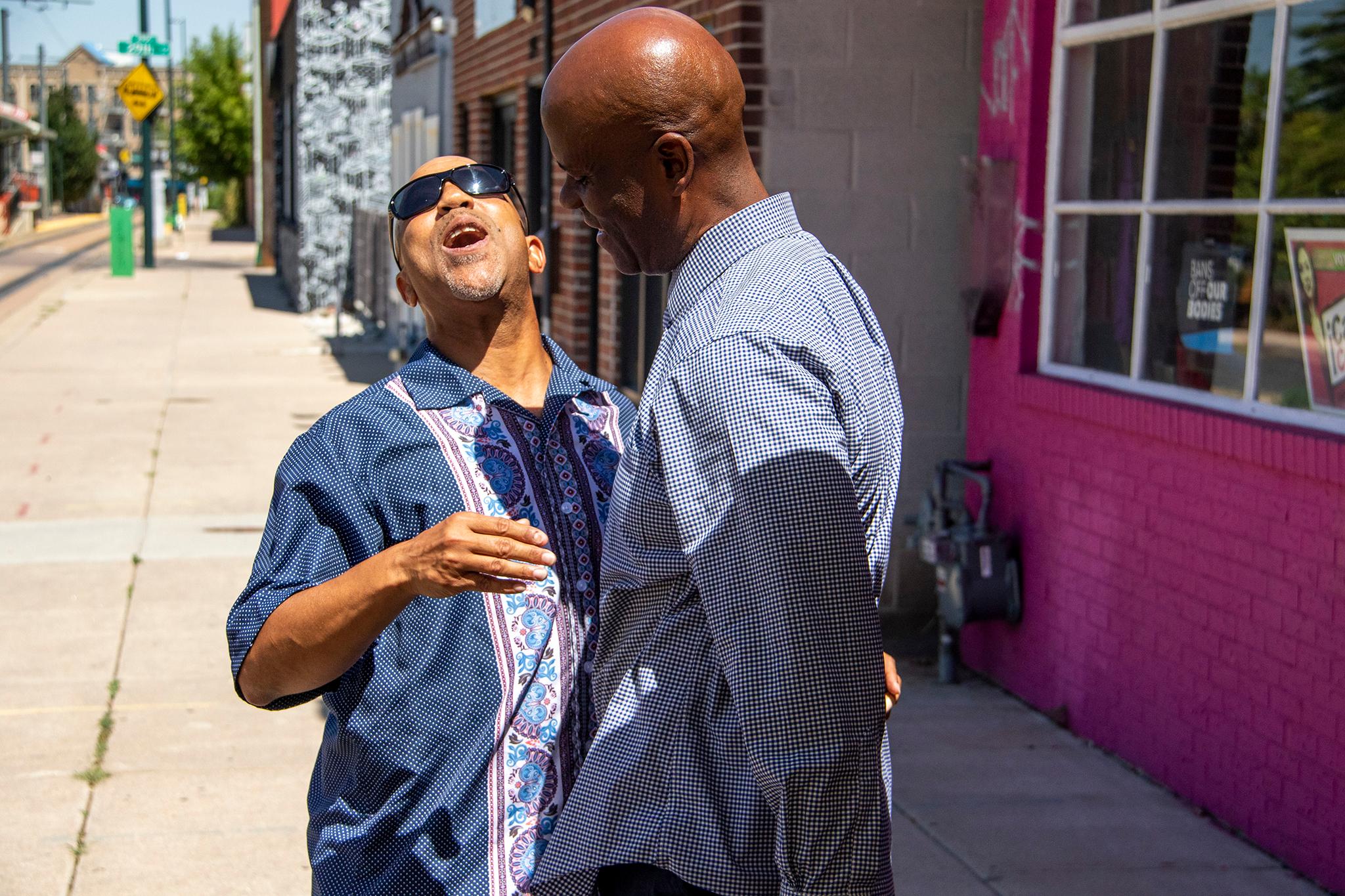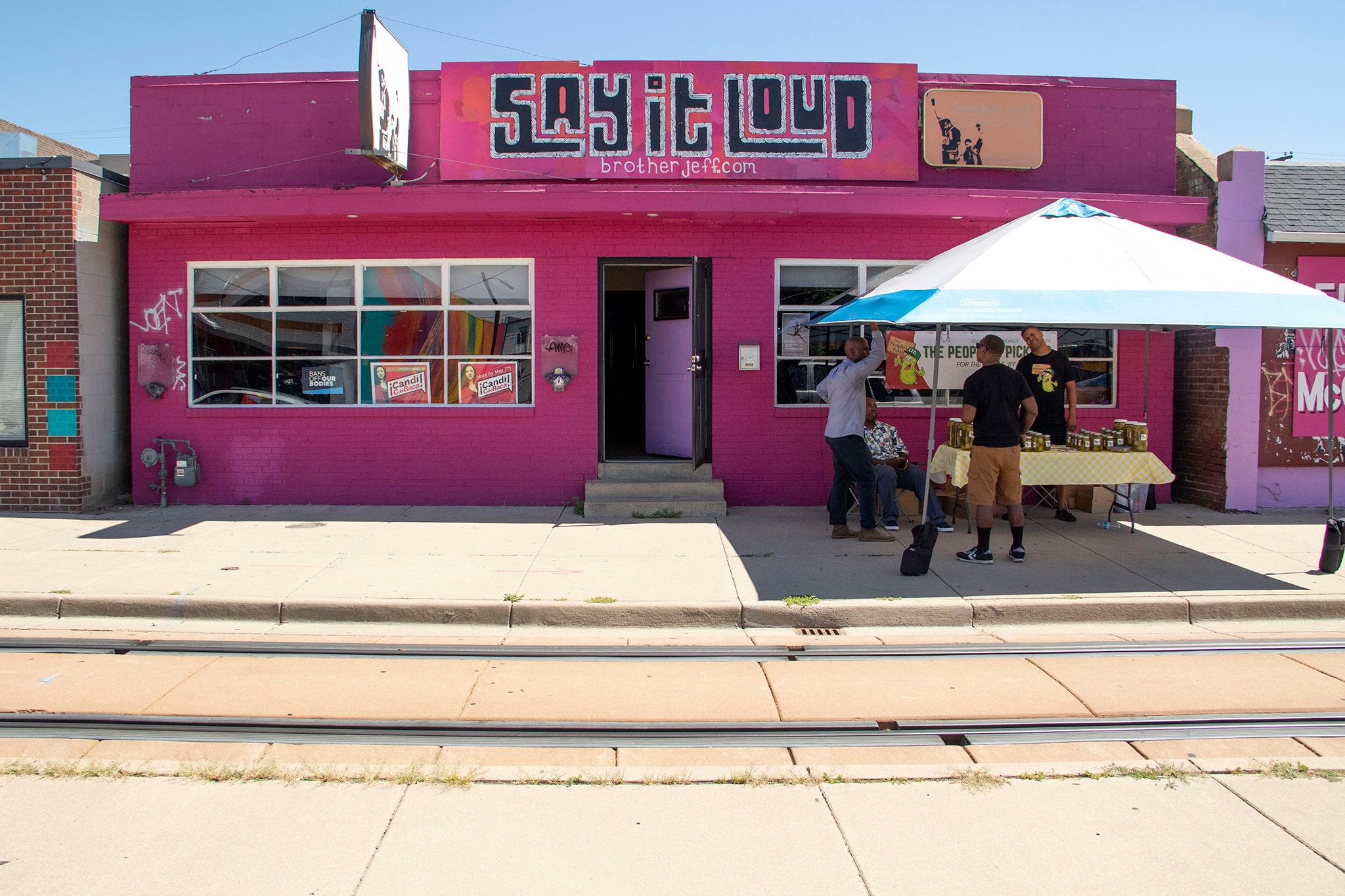If you're looking for community, specifically Black community, you can find it in a fuschia pink-colored building on Welton Street in Five Points.
That's Brother Jeff's Cultural Center. It's owned by Brother Jeff Fard, a lifelong Northeast Denver resident, who opened the hub in the mid-90s. During that time, he said the center was needed to combat gang violence that was prevalent in the neighborhood. Today, it continues to be a community hub focused on providing a safe space for those needing togetherness through music, arts, learning programs and culture.
Take Black Dollar Saturdays, for example.
Every Saturday, local entrepreneurs can head out to the Cultural Center to sell their goods. It's like a hyperlocal flea market but at the Center, there are no fees, no merchant lists and no rules. Entrepreneurs can come when they're able, set up shop and just vibe with whoever decides to stop by and shop.
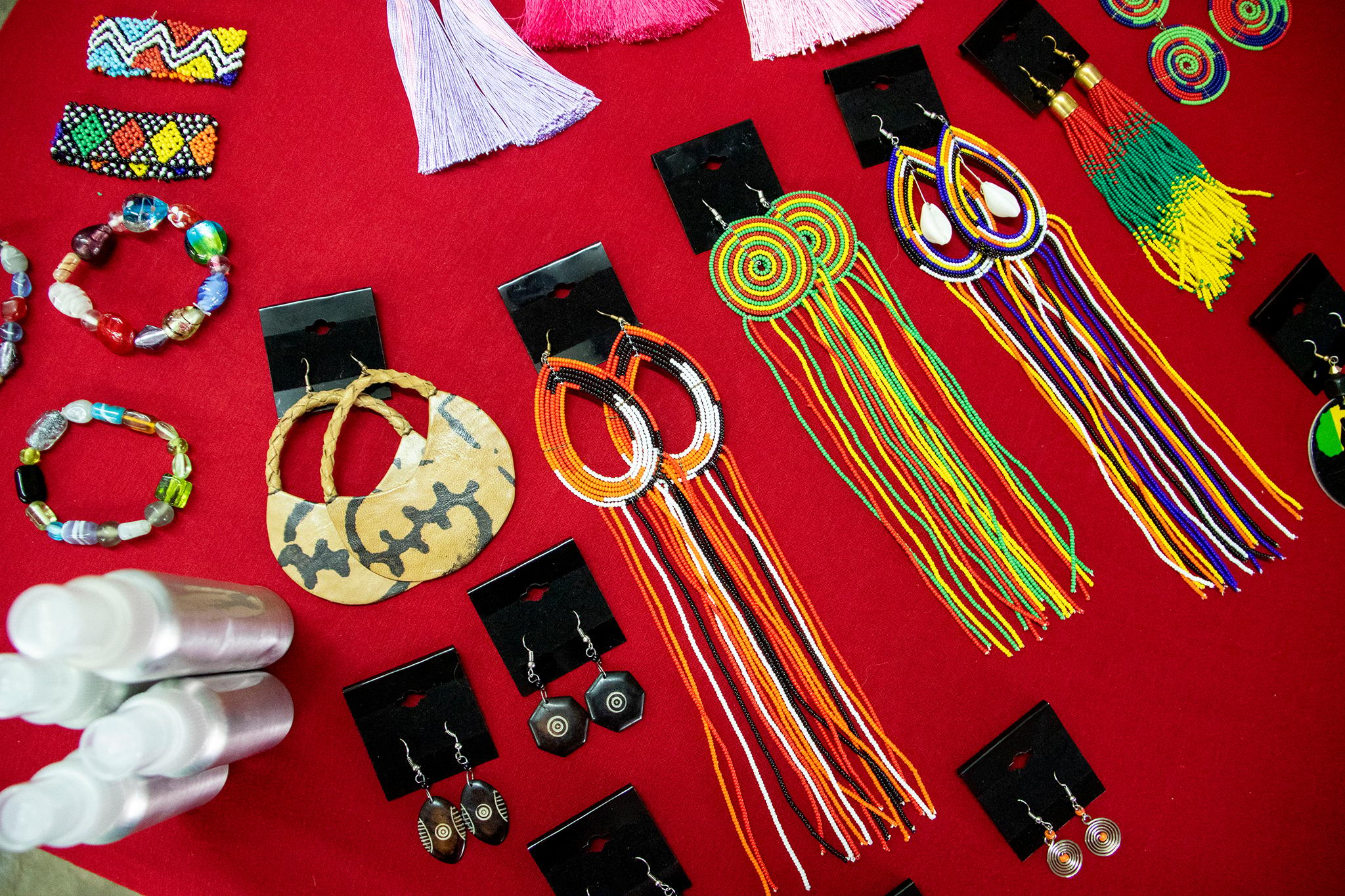
"How do you come together collectively and understand the power of cooperative economics? In other words, sharing with one, spending with one, being with one," Fard said. "The focal point of it is simple. Bring a table, set up, it's free. There's no booth rentals. There's no application to fill out. There's no day to sign up. It's, 'Hey we're going to be open, if you want a place to pop-up, come and do that.'"
Fard said Black Dollar Saturdays stemmed from the fourth principle of Kwanzaa, Ujamaa, or cooperative economics, which he said can help build generational wealth, not for individual families, but for the neighborhood as a whole. To him, community is about unity and in order for communities to thrive "rugged individualism" needs to be tossed to the side. That's the idea behind Ujamaa, the removal of individualism from wealth building.
The community aspect is what drew Euda K. Best to Black Dollar Saturdays, the Center and Five Points as whole.
She's been visiting the Center for the past three years, selling jewelry and books but her main business focuses around coaching, healing and card readings. Best was previously an engineer but left the corporate world in 2008. With the help of the Center, she was able to find a space to sell her product and build up her network.
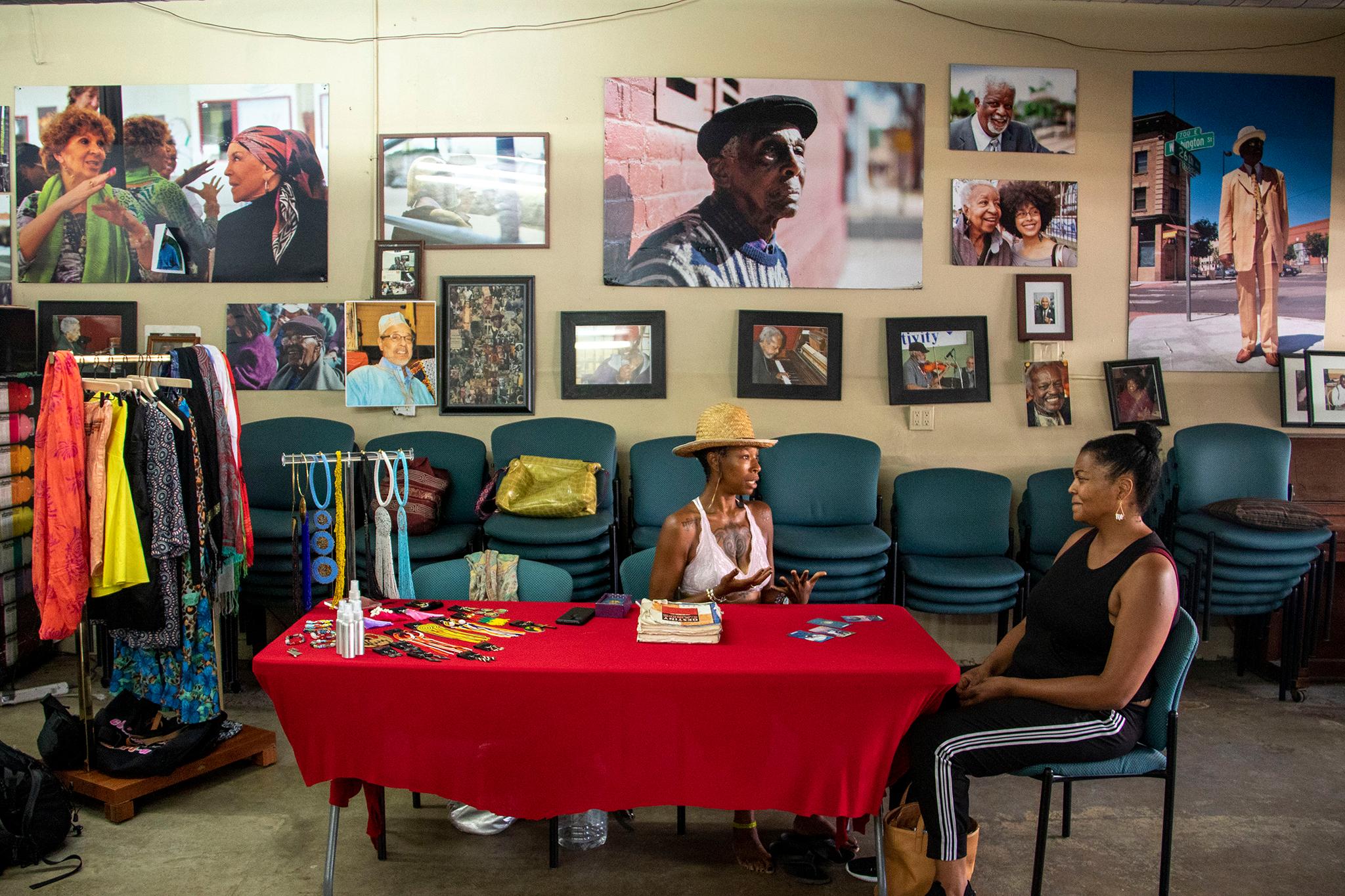
"When I first started reading the cards, (Black Dollar Saturdays) made it viable," Best said. "At that time I certainly was not comfortable paying $100 plus in vendor fees. So to have a space where you can just go, do what you want to do and then maybe donate back after the fact... it just really gave me a place to go when I really didn't have any. It's beyond important and beyond a great gift for (Brother Jeff) to offer that to the community."
Best grew up in Pueblo and Colorado Springs before attending University of Colorado Boulder. While at CU, she said she would take the bus down to Five Points for the day and visit Pierre's Supper Club or Kapre Lounge and Fried Chicken, two Black-owned businesses that no longer exist on the corridor.
Best said she'd visit to be around other Black people. That's another reason why the Cultural Center exists.
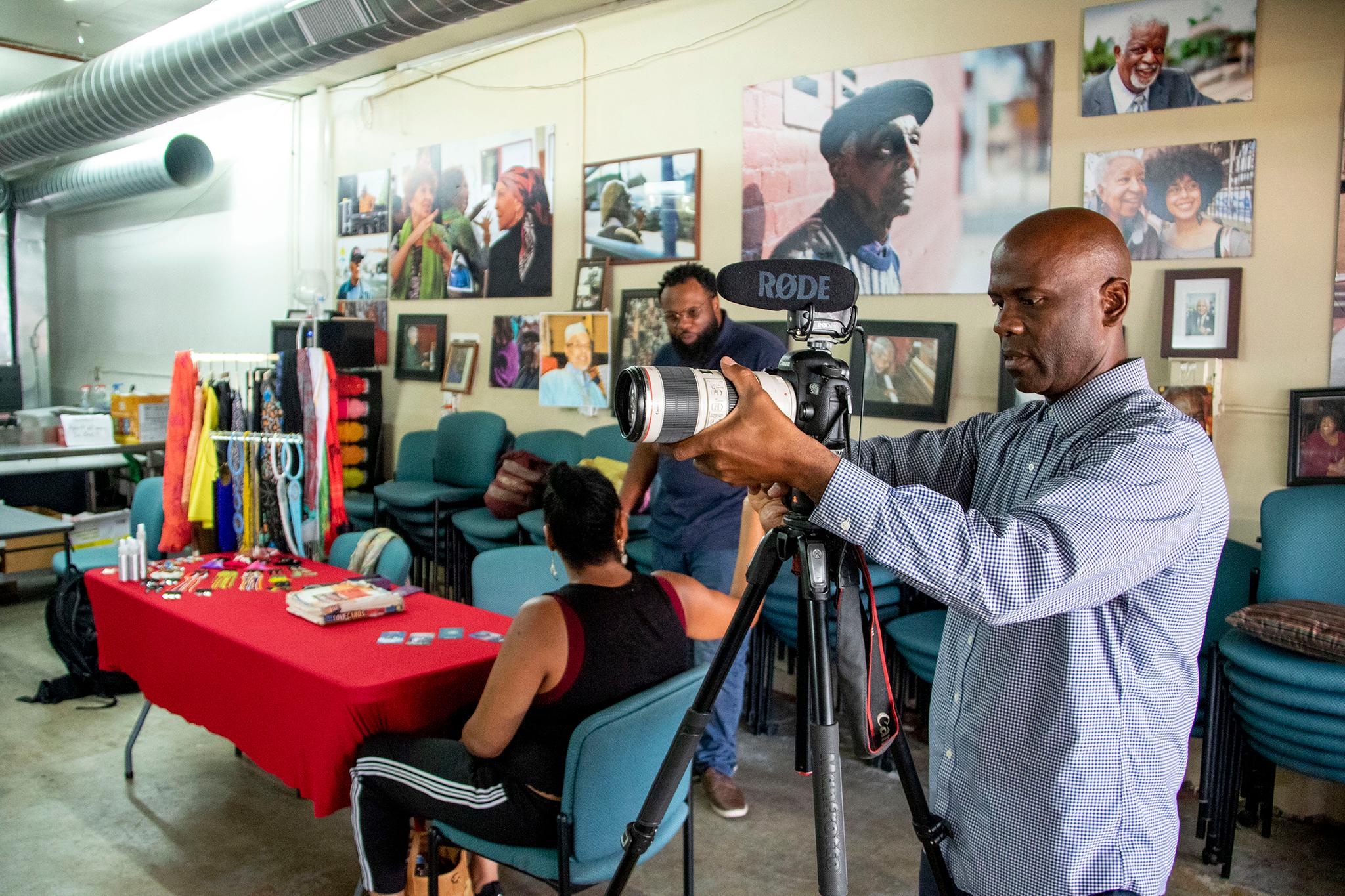
"It's an oasis in the desert for those who are looking for community," Fard said. "There are many who look for, particularly in the midst of gentrification, community... If you're part of the African-American community and it feeds your soul, you're going to have a hard time finding it in a geographical area. So you have to be strategic about how you connect to community... or at least know that it exists, and it exists in very powerful ways."
The Center is a focal point in an area that has very few remaining neighborhood staples. Outside of Franklin Stiger Afro Styling Barber Shop, which opened in the '80s, and Welton Street Cafe, which is struggling to remain in the community, the Cultural Center may be one of the oldest things remaining in Five Points. When Denverites talk about gentrification and the subsequent displacement of minorities, specifically Black Denverites, the first area they mention is the northeast neighborhood.
When you get past the shiny tall new apartment complexes and redesigned townhomes (which some rent for almost $5,000) and find yourself on the Welton Street corridor, the once bustling strip and center of the "Harlem of the West," you're greeted with some emptiness. Even near the Cultural Center. Across the street is a vacant lot set for housing and the nearby businesses are all shuttered.
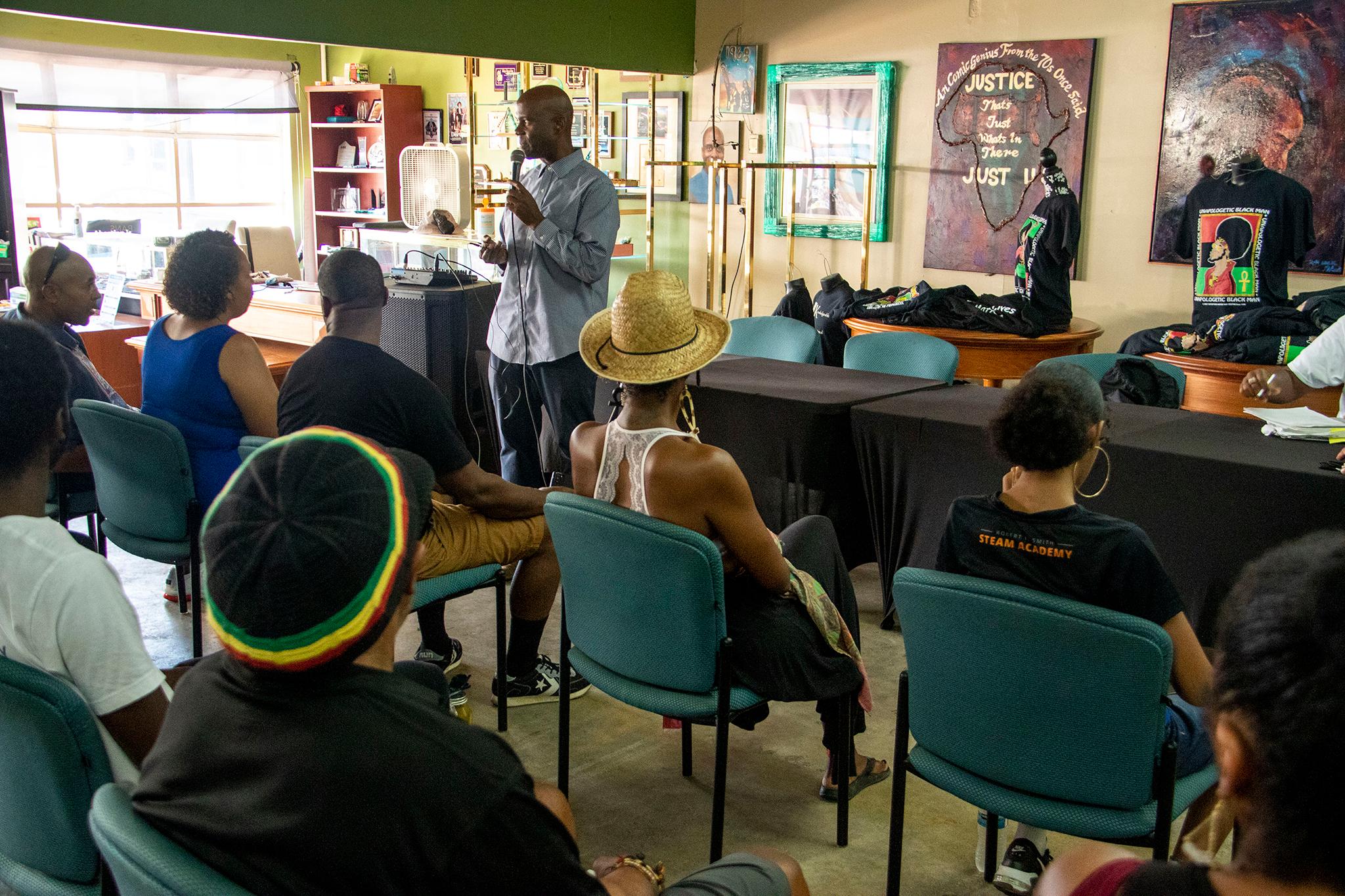
"Gentrification is class warfare," Fard said. "We have to have a systemic analysis about the unraveling or the economic attack on a community. We talk a lot about, and rightly so, the interaction between law enforcement and Black folk, but where's the conversation about land and Black folks? Black Land Matters? Black Loans Matter? Black Access to Capital Matters?"
The Colorado News Collaborative reported, citing a Zillow analysis, 15% of Black mortgage applicants in Colorado were denied in 2020, compared with 9% of white applicants. Citing Brookings, homes in predominantly Black neighborhoods are undervalued by $48,000.
Denver has approximately 70,000 businesses and only 999, or 1.4%, are Black-owned, the Denver Post reported.
While Five Points has changed, some Black businesses still exist and so do the Black entrepreneurs.
Besides providing a space for entrepreneurs, Fard said Black Dollar Saturdays is also about community gathering, a place to "cross-pollinate intellectually and culturally." For example, the Center will be hosting an open mic on September 3.
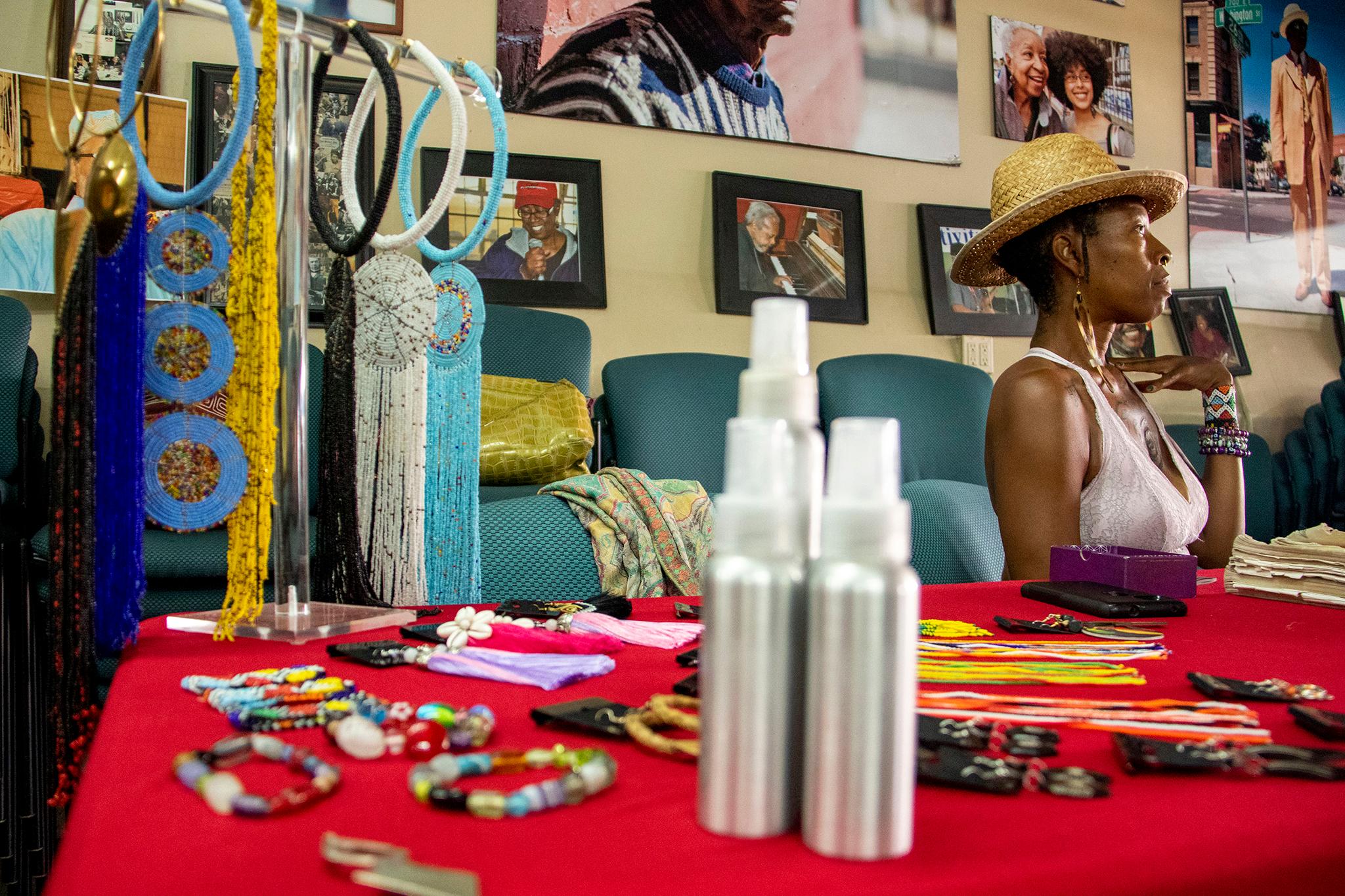
Best said that's an aspect of Black Dollar Saturdays she'd love to expand on.
"I believe in circulating the dollar in the Black community as much as possible but I personally am happy when people just stop in to say hi," she said. "I want people just to come and add to and feel the vibe.... I want to make sure that the majority of the Saturdays, in addition to the vending and maybe some games, we have some sort of a presentation to bring people out to participate in."
A couple of Saturdays ago, the Center did just that, hosting a workshop titled "Trauma, the Brain and the Black Community." The panel focused on generational trauma in the Black community, from slavery, to mass incarcerations and to the viewing of Black deaths at the hands of police officers on social media. It also focused on mental health awareness. Some of the speakers included activist Candice Bailey and former Denver Bronco and two-time Super Bowl champion Tyrone Braxton, who is a licensed clinical social worker and a licensed addictions counselor for Denver Health.
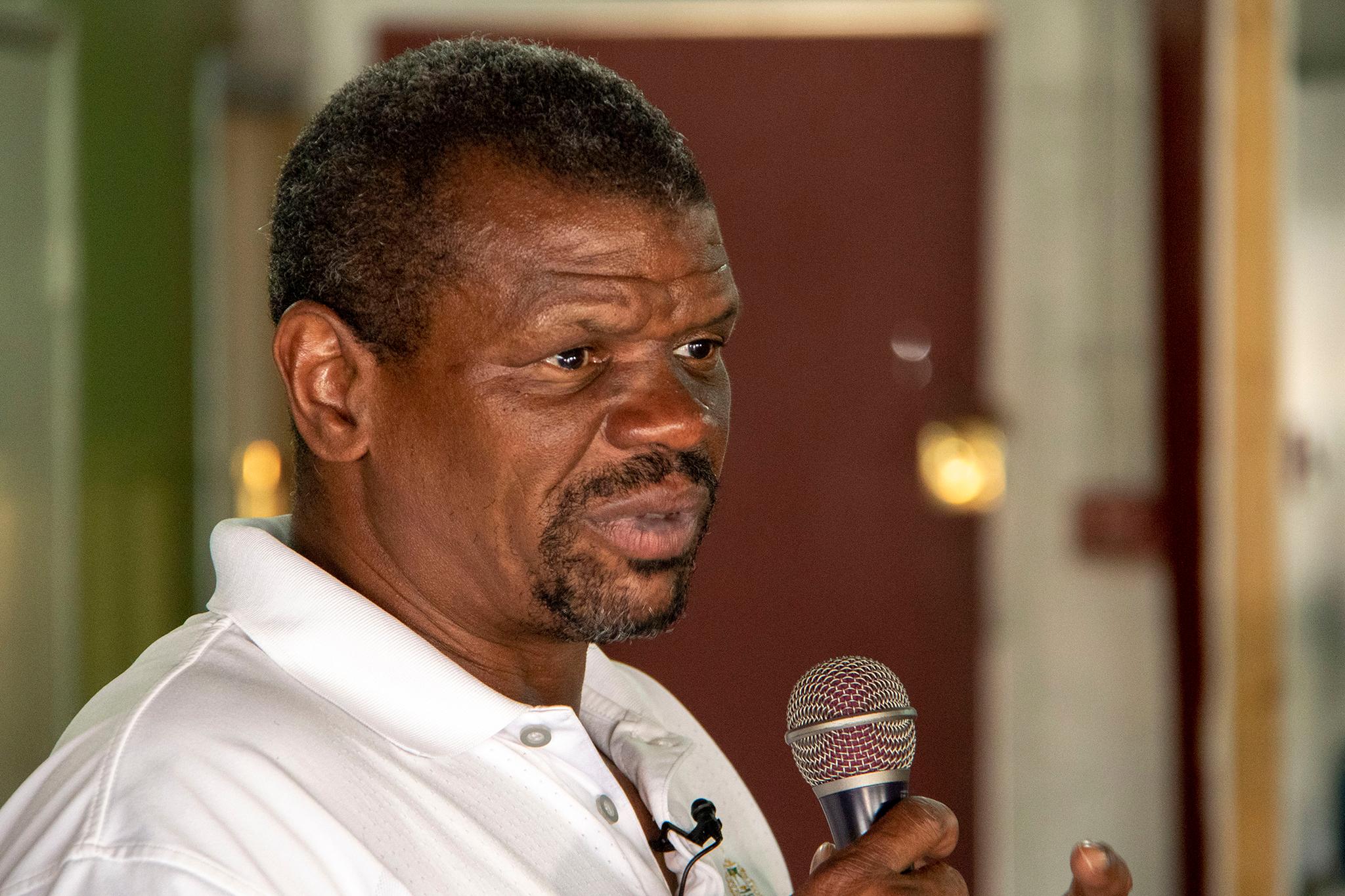
As the panel went on, the Cultural Center filled up. People peeked their heads in, heard the voices and took a seat to listen. After the speakers were done, Fard gathered everyone in a circle to have an open forum on what was discussed. There were some agreements on how trauma could be healed through collective work and there were some disagreements on what that collective work looked like. But overall, there was just a level of appreciation. The people who spoke mattered. The people who listened mattered. And even if you had nothing to add to the conversation, you mattered.
That's what community feels like, Fard said. Coming together to discuss a serious topic, then chopping it up afterward.
"My hope for the Cultural Center is that we will continue to build something collectively that we will pass on to future generations," Brother Jeff said. "Black Dollar Saturdays exist. Bring a table, it's free. Brother Jeff's Cultural Center is open and free to everyone.
"We're unapologetically cultural, in particular, in the Black ethos but that shouldn't make a person nervous.... It's not anti-white. It's not anti-anything. But when you come here, you know it's a Black ethos."
